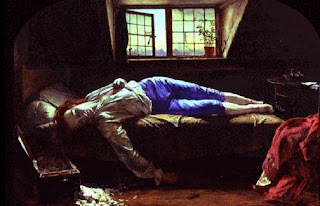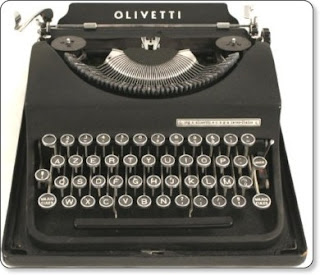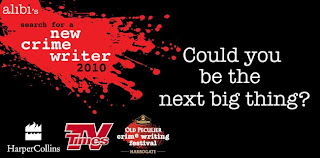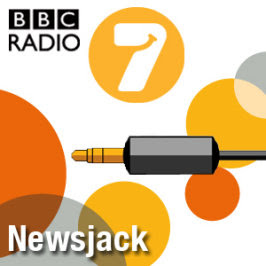 One of the problems facing writers is their anonymity; the old joke in Hollywood used to be that an airhead actress was so keen to further her career that she slept with the screenwriter.
One of the problems facing writers is their anonymity; the old joke in Hollywood used to be that an airhead actress was so keen to further her career that she slept with the screenwriter.
And in a way, it remains that way to this day; for every Jo Rowling or Stephen King that you might recognise, there are a hundred writers who you wouldn’t recognise if you tripped over them in the street (where, I guess, they’d be lying due to the writerly tendency to seek solace in the bottle, but that’s a subject for another time).
And of course there are the Salingers of this world who actively avoid publicity and camera lenses – fine for writers, but not the sort of thing you can really do if you want to be an actor or member of a band (The Residents and The Art Of Noise have dedicated, but let’s face it limited, fanbases).
It’s an inevitable consequence of being the one who puts the words into the heads or mouths of other people, of course, but in an increasingly personality-driven age, where celebrity (of no matter how nanoscopic a level) is the great leg-up to success, what can a writer do to increase their chances? What, what, what?
I’m glad you asked that question. I’ve been thinking about this a lot, and in fact I spent the whole of last night looking through my collection of Grazia and love it magazines, and I think I’ve figured out two of the best ways to get famous quick. They seem to work across a whole bunch of forms of entertainment, so I don’t see any good reason why they shouldn’t help writers (then again, I am an idiot).
Anyway.
1) Have a tragic story to tell
Maybe it’s schadenfreude, or maybe it’s schwarzwalder kirschtorte, but people love to hear tales of terrible tragedy. If your parents kept you in a sack in a box in the cellar even though they lived in a bungalow, then you shouldn’t shy away from writing or talking about it.
In all honesty, even if you didn’t have a tough childhood, you shouldn’t be afraid to make it up like James Frey did. Once you’ve sold millions of books, you might have to apologise, but by then you’ve banked the money, and apologising on the Oprah show is all the more bearable when you can go home to your gold-plated mansion in the Caribbean.
Be careful not to go too far, though; whilst we all know that the audience for tragic memoirs is always keen to hear more tales of childhood neglect and abuse, know the limits: claiming to have beaten to death by a cruel step-parent might make your offering of a manuscript hard to swallow, as might getting too far into the world of make-believe; only the most gullible of publishers would stick ‘Non-Fiction’ on the back of the cover of your memoir of how you suffered in Narnia under the Snow Queen, or how your home in Helm’s Deep was affected by a nearby battle.
2) Claim there was chemistry between you
This is an old showbiz trick, often used in films – if the film isn’t getting very good reviews, a few well-placed leaks about some on-set shenanigans between the leads can help increase press coverage. Obviously, this is rather dependent on the film – Two Weeks [sic] Notice and, more recently, The Bounty Hunter saved a lot of money they’d have had to spend on marketing by pretending the leads had “more than just on-screen chemistry, know what I mean, nudge nudge”, but it’s less believable when stated of the cast of Monsters Inc, and so blindingly obvious as to not even be worthy of claiming about the cast of Suburban Shagfest 3 – Spank You Very Much.
However, to do this you’ll need to have someone to claim to have chemistry with. This is fine if you’re married co-writers like Nicci French, very wrong if you write with a family member like PJ Tracy, but as most writers work alone, to avoid accusations of being in love with yourself (an allegation often levelled at more solipsistic writers, who tend to be at the literary end of the scale, or bloggers), it’s best to find someone else in the process to pretend to have been having an affair with.
For many writers, this will have to be an agent or editor, though this of course means you have to have been accepted (and not in that way) by them prior to this stage; it’s not likely to help your submission very much if the query letter has a PS saying “if you take me on I will do things which are illegal in several EU countries” unless you’re very confident both of your manuscript and of your own attractiveness, regardless of whoever opens the submission. And you’d probably need to send a picture to prove your point. A nice one, tastefully lit. With the top button undone, just to make sure. Yeah, you look good like that. Oh yeah baby, you know what I like. Uh-huh.
Um, seem to have strayed from the point a bit there, but if you’re going to go down the chemistry route (either real or faked), it’s probably best if you, or the person you’re working with, is a known quantity to the world at large. In most writing instances, that’s not likely, and even if it is the case, it may not work – Marilyn Monroe married Arthur Miller, but if she saw it as a way to get a foot in the door of writing plays, it doesn’t seem to have worked.
Anyway, those are my two theories, and if you give either of them a go, do let me know how you get on. You might think I’ve made a mistake by telling you how to do it, but I’ve already started to use these approaches as a leg-up into being published, and am hanging round literary agents’ offices with my shirt unbuttoned down to the waist. And if that doesn’t work, I plan to write a misery memoir about my traumatic years spent trying to make it as a writer.
All the bases covered there, I like to think.









